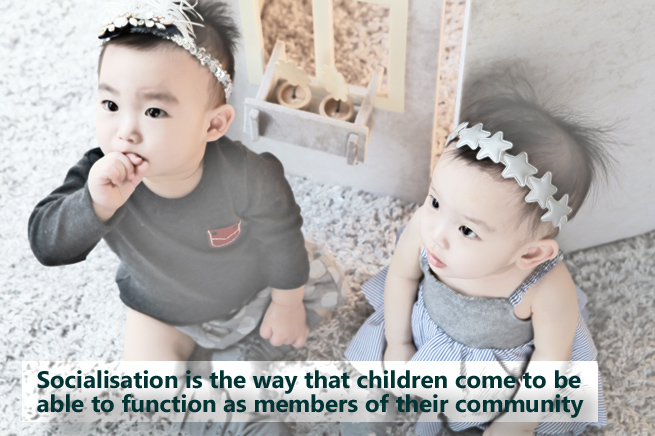Find out more about The Open University's Early Years courses and qualifications
What is Socialisation?

Basically, socialisation is a general term for the many different ways and processes by which children come to be able to function as members of their social community. It is in part a process of learning and in part a process of being taught, but modern views of socialisation also stress the active role of children in making sense of their social world, and constructing their own ways of being part of their social group.
There are also strong predispositions, visible even in very young infants, to engage and interact with other people in preference to all the other objects in the world. Infants seem to be born as social beings.
But although babies come into the world with this ‘preparedness’ to be social, the immensely rich variety of different cultures in the world means that there is a lot of learning that has to happen. A large part of what goes on between parents and their children, in all cultures that have ever been studied, is to do with ‘training’ children in the ways of the culture, not just in ways of relating to others - including learning the culture’s language - but also in the myriad technologies to do with the necessities of everyday life.
Socialisation is also a long, drawn-out process and in some respects can continue throughout our whole lifetime: for example when adults find themselves interacting with people from unfamiliar cultures. Even when we join a new social group in our own culture there may be a need to adjust to new ways of behaving.
(Image: kangheubo)





Rate and Review
Rate this article
Review this article
Log into OpenLearn to leave reviews and join in the conversation.
Article reviews